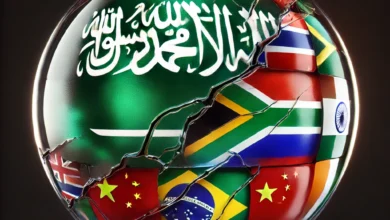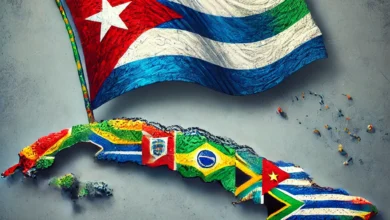Nigeria Joins BRICS as Partner Country: A New Era for Africa’s Largest Economy

In a landmark development, Nigeria has been admitted as a “partner country” within the BRICS coalition of emerging economies, as announced by Brazil, the bloc’s current chair. This move marks a significant step for Nigeria, Africa’s largest economy, as it strengthens ties with one of the world’s most influential economic alliances.
What is BRICS?
BRICS, an acronym for Brazil, Russia, India, China, and South Africa, was established in 2009 to promote collaboration among major emerging economies and serve as a counterbalance to the G7, the group of advanced industrialized nations. Over the years, BRICS has grown into a powerful platform for economic cooperation, trade, and investment, advocating for a more multipolar world order.
BRICS Expansion: A Growing Global Influence
In recent years, BRICS has pursued an ambitious expansion strategy to broaden its global reach. In 2023, the bloc welcomed Iran, Egypt, Ethiopia, and the United Arab Emirates as new members, significantly enhancing its geographic and economic footprint. Saudi Arabia has also been invited to join, while Turkey, Azerbaijan, and Malaysia have formally applied for membership. Several other nations have expressed interest, underscoring BRICS’ growing appeal as a global economic force.
Why Nigeria’s Partnership Matters
Nigeria’s inclusion as a partner country highlights its strategic importance as Africa’s most populous nation and a key player in the continent’s economic and political landscape. With a GDP exceeding $500 billion and a rapidly growing population, Nigeria’s partnership with BRICS opens doors to new opportunities in trade, infrastructure development, and technological innovation.
For BRICS, Nigeria’s involvement strengthens its presence in West Africa and enhances its ability to address global challenges such as climate change, energy security, and sustainable development. This partnership also aligns with BRICS’ goal of fostering stronger ties with African nations, a region rich in resources and economic potential.
Opportunities for Nigeria
Nigeria’s partnership with BRICS comes at a critical time for the country, which is seeking to diversify its economy and reduce its reliance on oil exports. By aligning with BRICS, Nigeria gains access to the bloc’s New Development Bank (NDB), which has funded billions of dollars in infrastructure and sustainable development projects across member countries. This could provide much-needed financing for Nigeria’s infrastructure gaps, energy projects, and agricultural modernization.
Additionally, Nigeria stands to benefit from increased trade and investment flows with other BRICS nations. Collaboration in areas such as agriculture, manufacturing, and digital innovation could drive economic growth and create jobs, addressing some of the country’s most pressing challenges.
BRICS and the Shifting Global Order
The expansion of BRICS reflects a broader shift in global dynamics, with emerging economies increasingly asserting their influence on the world stage. The bloc’s emphasis on de-dollarization, local currency trade, and multilateral cooperation challenges the dominance of traditional Western-led institutions like the IMF and World Bank.
For Nigeria, this partnership represents an opportunity to diversify its economic alliances, reduce dependency on traditional Western markets, and leverage BRICS’ collective strength to address domestic and regional challenges.
What’s Next for BRICS and Nigeria?
As BRICS continues to grow, its role in shaping the global economic order is becoming increasingly evident. The bloc’s focus on inclusivity, collaboration, and the aspirations of the Global South resonates with many developing nations. Nigeria’s admission as a partner country is a testament to BRICS’ commitment to expanding its influence and fostering deeper ties with Africa.
For Nigeria, this partnership is a chance to position itself as a regional leader and a bridge between Africa and the rest of the world. By leveraging BRICS’ resources and expertise, Nigeria can accelerate its economic transformation and play a more prominent role in global affairs.
Conclusion
Nigeria’s admission as a BRICS partner country marks a new chapter in the nation’s economic and geopolitical journey. As BRICS continues to expand and evolve, its partnership with Nigeria underscores the bloc’s growing influence and its commitment to empowering emerging economies. For Nigeria, this is an opportunity to unlock new growth avenues, strengthen its global standing, and contribute to a more balanced and inclusive world order.

